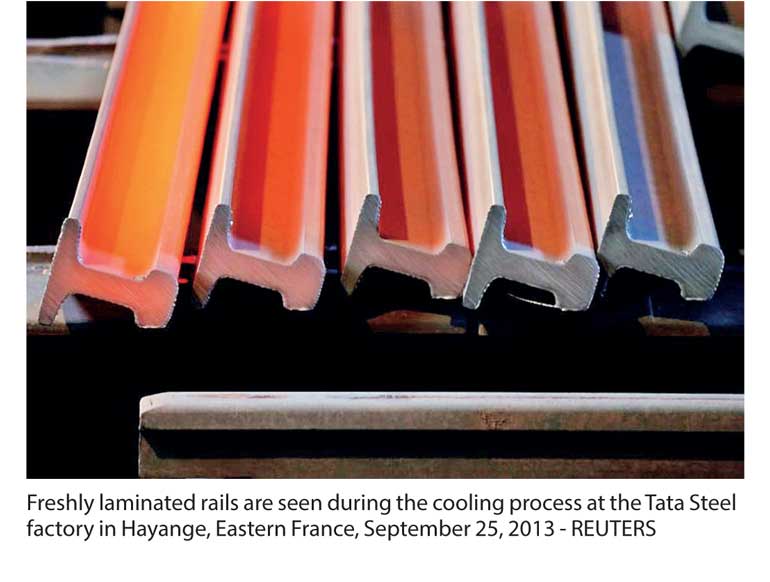Wednesday Feb 18, 2026
Wednesday Feb 18, 2026
Wednesday, 4 April 2018 00:00 - - {{hitsCtrl.values.hits}}
 London (Reuters): The euro zone’s manufacturing boom stumbled for a third month in March as optimism waned and demand ebbed, a survey showed on Tuesday, but output remained robust and expansion was still broad-based across the region.
London (Reuters): The euro zone’s manufacturing boom stumbled for a third month in March as optimism waned and demand ebbed, a survey showed on Tuesday, but output remained robust and expansion was still broad-based across the region.
Factories in the bloc ended 2017 with record strong growth so any slowdown from that pace is unlikely to stop decision-makers at the European Central Bank moving away from their ultra-easy policy stance.
IHS Markit’s final manufacturing Purchasing Managers’ Index (PMI) for the euro zone sank to an eight-month low of 56.6 in March from 58.6, in line with an earlier flash estimate and still comfortably above the 50 mark that separates growth from contraction.
An index measuring output, which feeds into a composite PMI due on Thursday which is seen as good guide to economic health, fell to a 16-month low of 55.9 from 59.6, a little below its flash estimate.
“We should not be too worried by the fall in the PMI as some moderation in the pace of growth from the surge seen at the turn of the year was inevitable,” said Chris Williamson, chief business economist at survey compiler IHS Markit.
“The overall pace of growth nevertheless remains robust by historical standards, with decent PMI readings seen in all countries, including Greece, to indicate a steady, broad-based expansion.”
Earlier sister surveys showed although growth slowed in the currency union’s four biggest economies it still stayed strong.
Yet factories were at their least optimistic since the end of 2016 and demand for products was at its weakest in 16 months.
Some of that fall in demand may have been due to manufacturers increasing prices again while a strong euro probably played a part in making the bloc’s exports less attractive. In February, factories had raised prices at their fastest pace in nearly seven years. An index measuring output prices remained high at 57.3 in March, down from 58.4 a month before.
Inflation was 1.4% last month, official flash estimates due on Wednesday are expected to show according to a preliminary Reuters poll, still well below the ECB’s 2% target ceiling.
Euro zone economic growth has already peaked, another Reuters poll found last month, but the ECB will probably decide this summer to slash its bond purchases if things develop as expected, policymaker Ewald Nowotny said last week.